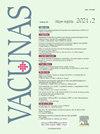Shaping health behavior and social connectedness during COVID-19 through media adaptation strategies in Indonesia
Q3 Medicine
引用次数: 0
Abstract
Background
The role of media is not only to give information about social matters but it also has a significant role in educating health concerns during the COVID-19 pandemic in Indonesia.
Purpose
The present study investigated how media networks in Indonesia responded to the COVID-19 by providing adaptation strategies to prevent its effects. The current research aims were not only to foster awareness of health issues but also to analyze the role of media in changing public behavior and health concerns.
Methods
The study employs a qualitative research design and interviews were conducted with the general public, including those who were infected with COVID-19, students, and staff working in hospitals, educational institutions, and public service departments. The interviews were analyzed through thematic analysis.
Results
The study's findings reveal that the participants of the study adopted multiple adaptation strategies for the prevention of COVID-19 that have been introduced, including media accessibility for updates, online media engagement for social connectedness, highlighting public health issues, developing trust among communities, and providing social support through media.
Conclusion
The pandemic has brought certain changes in the living patterns of people in Indonesia, and the media has played a greater role by fostering public health information. Furthermore, there has been a significant increase in the usage of media communication channels to disseminate information about the virus and to provide guidance on how the spread can be prevented. The study concludes that media has expectedly contributed to shaping public behavior.
在印度尼西亚通过媒体适应战略塑造COVID-19期间的健康行为和社会联系
背景媒体的作用不仅是提供有关社会问题的信息,而且在印度尼西亚COVID-19大流行期间,它在教育卫生问题方面也发挥着重要作用。目的本研究调查了印度尼西亚媒体网络如何通过提供适应策略来预防COVID-19的影响。目前的研究目的不仅是提高对健康问题的认识,而且还分析媒体在改变公众行为和健康问题方面的作用。方法采用质性研究设计,对新冠病毒感染者、学生、医院、教育机构、公共服务部门工作人员等社会公众进行访谈。通过专题分析对访谈进行分析。研究结果显示,研究参与者采用了多种已引入的预防COVID-19的适应策略,包括媒体可访问性更新,在线媒体参与社会联系,突出公共卫生问题,建立社区之间的信任以及通过媒体提供社会支持。结论疫情给印尼人民的生活方式带来了一定的变化,媒体在促进公共卫生信息方面发挥了更大的作用。此外,大大增加了媒体传播渠道的使用,传播有关该病毒的信息,并就如何预防该病毒的传播提供指导。该研究得出结论,媒体在塑造公众行为方面起到了预期的作用。
本文章由计算机程序翻译,如有差异,请以英文原文为准。
求助全文
约1分钟内获得全文
求助全文
来源期刊

Vacunas
Medicine-Infectious Diseases
CiteScore
3.90
自引率
0.00%
发文量
138
审稿时长
62 days
期刊介绍:
Sin duda una de las mejores publicaciones para conocer los avances en el campo de las vacunaciones preventivas, tanto en el ámbito de la investigación básica como aplicada y en la evaluación de programas de vacunaciones. Su alta calidad y utilidad la ha llevado a estar indexada en los prestigiosos índices IME y SCOPUS.
 求助内容:
求助内容: 应助结果提醒方式:
应助结果提醒方式:


